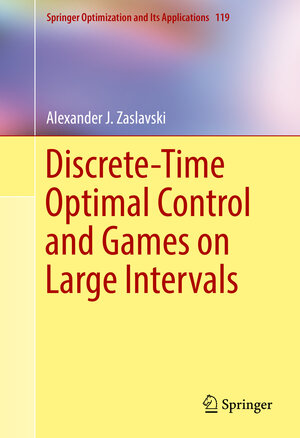
Discrete-Time Optimal Control and Games on Large Intervals
von Alexander J. ZaslavskiDevoted to the structure of approximate solutions of discrete-time optimal control problems and approximate solutions of dynamic discrete-time two-player zero-sum games, this book presents results on properties of approximate solutions in an interval that is independent lengthwise, for all sufficiently large intervals. Results concerning the so-called turnpike property of optimal control problems and zero-sum games in the regions close to the endpoints of the time intervals are the main focus of this book. The description of the structure of approximate solutions on sufficiently large intervals and its stability will interest graduate students and mathematicians in optimal control and game theory, engineering, and economics.
This book begins with a brief overview and moves on to analyze the structure of approximate solutions of autonomous nonconcave discrete-time optimal control Lagrange problems. Next the structures of approximate solutions of autonomous discrete-time optimal control problems that are discrete-time analogs of Bolza problems in calculus of variations are studied. The structures of approximate solutions of two-player zero-sum games are analyzed through standard convexity-concavity assumptions. Finally, turnpike properties for approximate solutions in a class of nonautonomic dynamic discrete-time games with convexity-concavity assumptions are examined.




